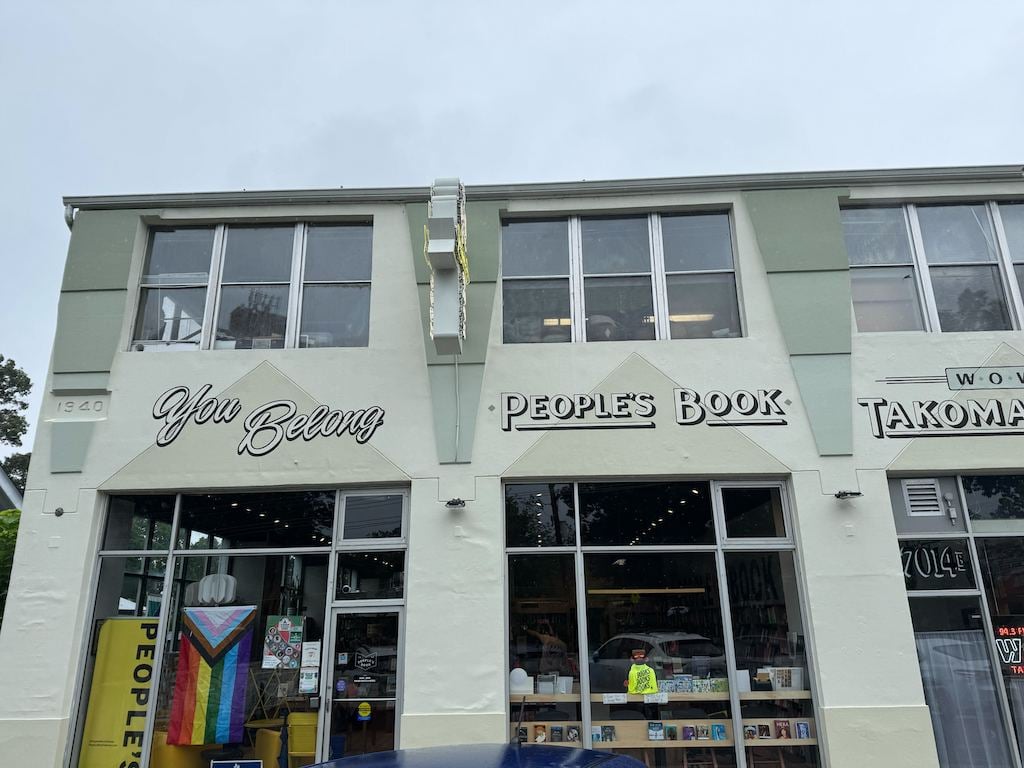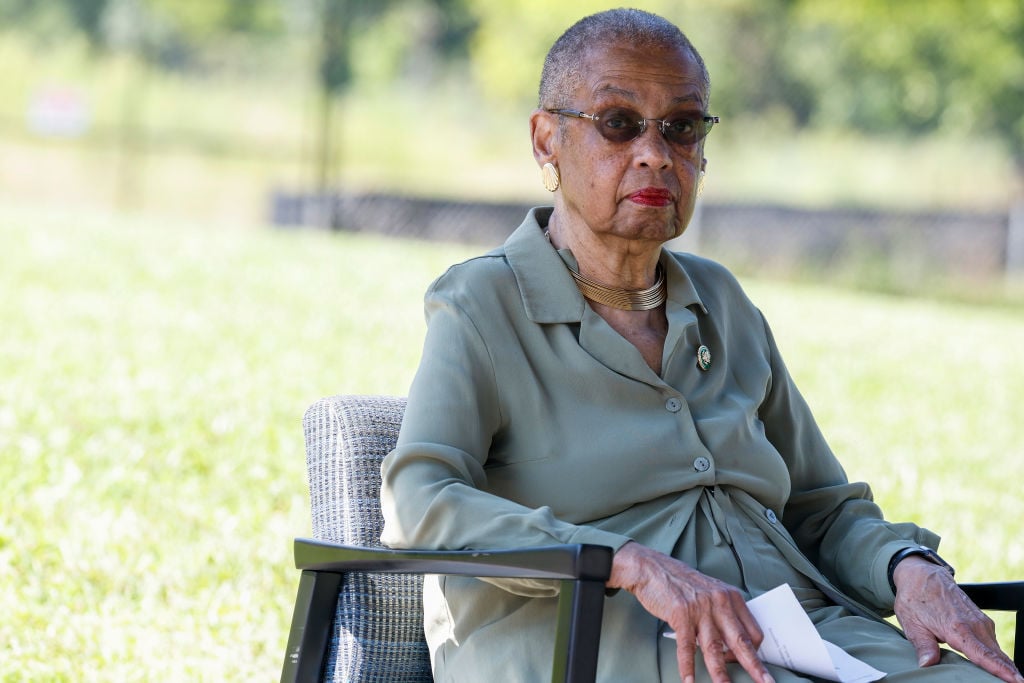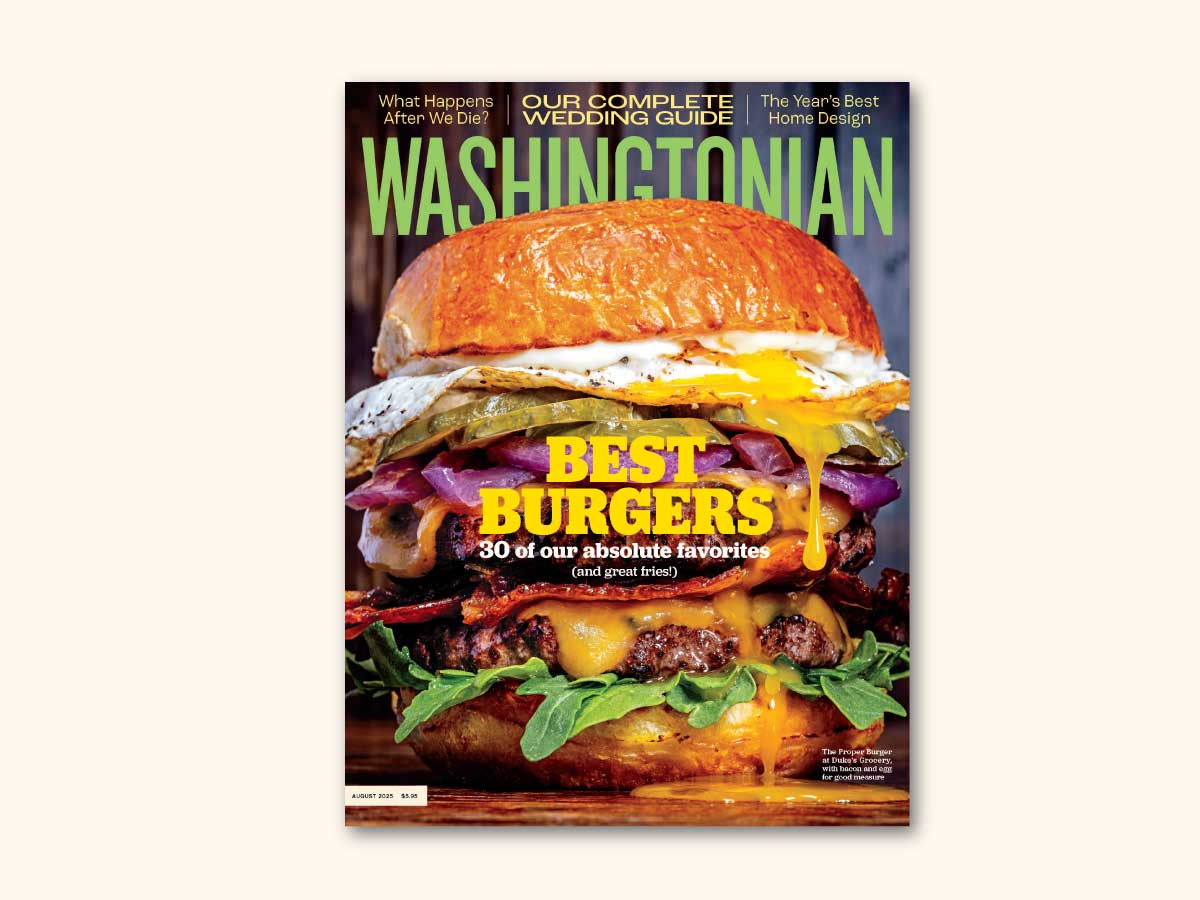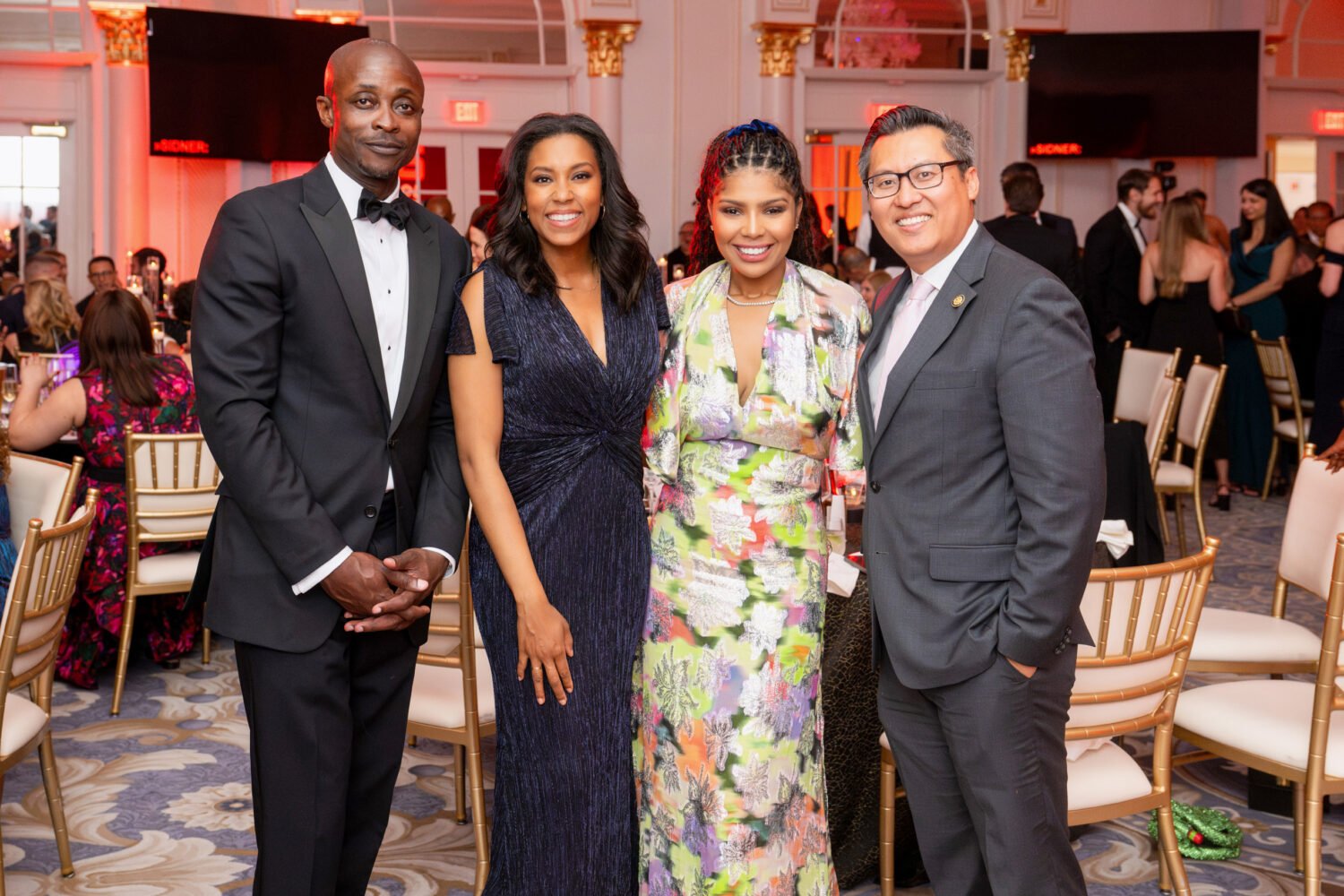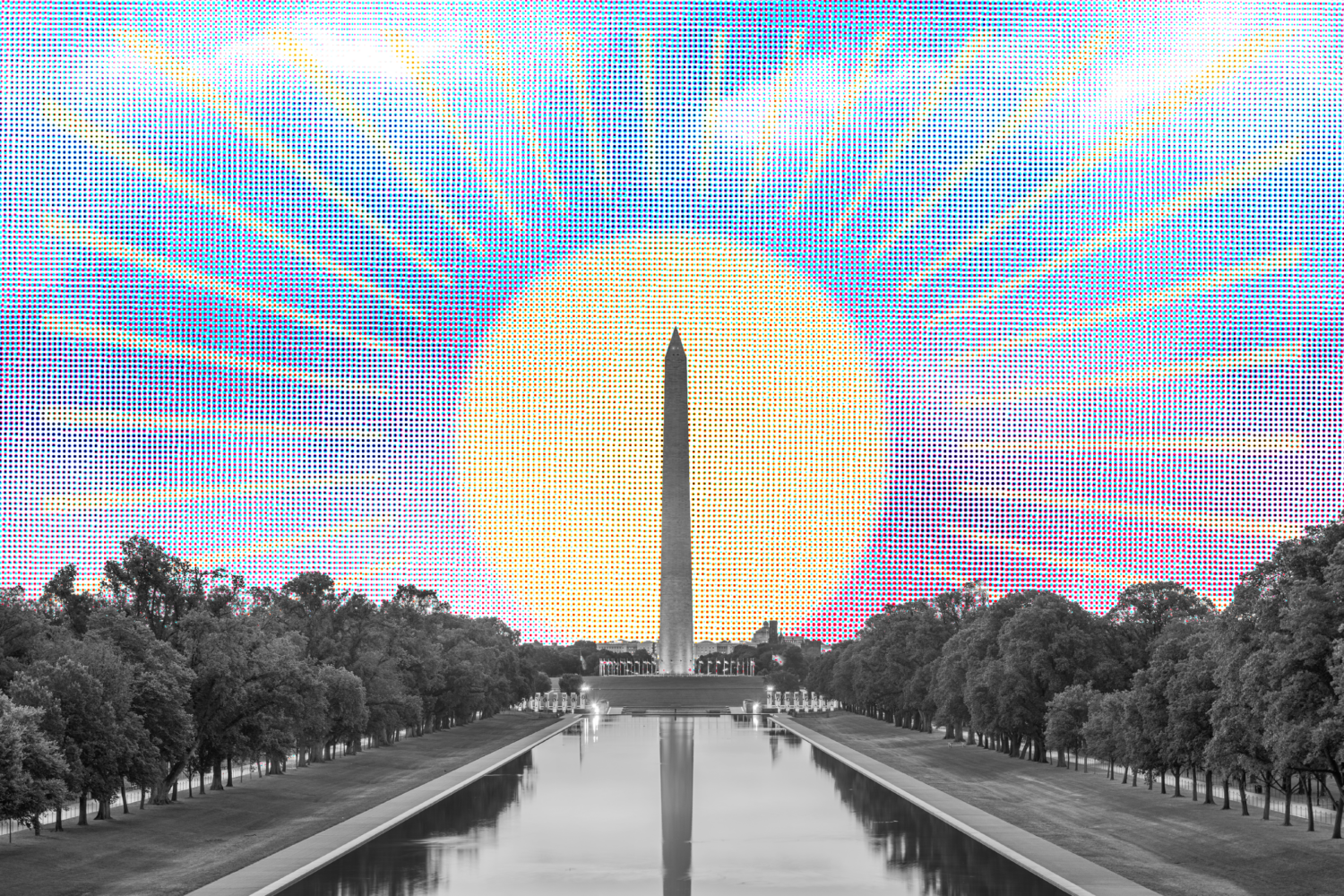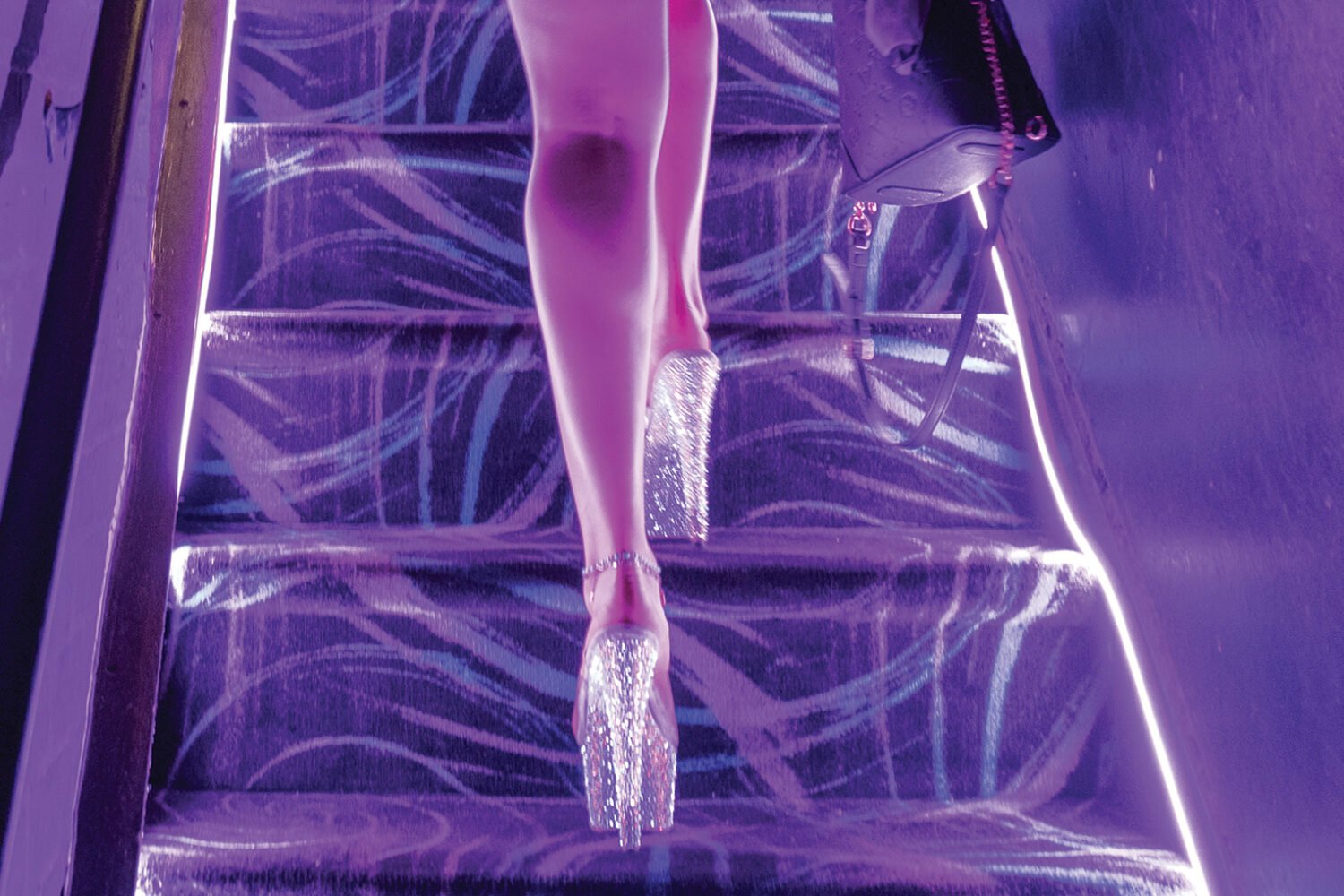A dark rain falls from an Old Testament sky. The elements, though, have a way to go to equal the sour look on Stephen Hunter’s face. The Washington Post film critic enters the lobby of the Charles Theatre in Baltimore nursing a plastic cup of coffee. Dressed in sweater, jeans, hiking shoes, and a Ravens baseball cap, he could pass for a parking-lot attendant.
Hunter takes a seat on a couch in the lobby. James “Buzz” Cusack, the theater’s owner, joins him. “What’d you really think of No Country for Old Men?” Cusack asks.
Hunter nods in appreciation of the Coen brothers’ latest thriller. It had plenty of what he likes—gunplay, chase scenes, thought-provoking violence. Yet in his Post review, he called it “unsatisfying, with a capital U.”
On this dark morning, preparing to screen Mr. Magorium’s Wonder Emporium, a fantasy/comedy, Hunter seems nostalgic for the violent R-rated film and ready to forgive the Coens for the movie’s faults. He tells Cusack there’s a lot to like about it.
Inside one of the Charles’s small theaters, a dozen critics gather for the morning screening. Hunter claims a row for his own and, as the lights dim, settles in with his coffee. With the titles rolling, he leans over and says in a stage whisper, “Everybody thinks this is such a glamorous job. But what it really comes down to is sitting in the dark, waiting for something memorable to happen.”
Over more than a quarter century, first at the Baltimore Sun and for the last decade at the Post, Hunter has emerged as the area’s most popular film critic and one of the most acclaimed nationally. Five years ago, he won the Pulitzer Prize for criticism, only the second movie reviewer to be so honored. The Pulitzer committee cited his “irreverent, fearless, spontaneous, explosively funny voice. And like the great Pauline Kael, he is forever suggesting that art can be a good, lusty, happy thing, that doesn’t always have to be an immersion in a new level of human misery.”
Not bad for a 62-year-old guy who barely survived a childhood with an alcoholic father and who once feared he’d be forever chained to the newspaper copy desk. Now in the twilight of his newspaper career, Hunter looks primed for big things as a novelist and in Hollywood.
Forty-five minutes in, Wonder Emporium has gone into a death spiral. Its meager jokes, despite the efforts of stars Dustin Hoffman and Natalie Portman, are met with silence by the critics. Hunter gazes at the screen as if praying for something better to happen.
Unlike many reviewers, he doesn’t take notes, which means he occasionally slips up in his description of a film’s story line. But for Hunter, a film and its review should be more than a parade of plot points. A good movie, he says, can make time stand still.
“You get gravitas by some special alchemy between face and film as transmuted through lens and tweaked by light, until what registers is larger and more powerful than what is,” he writes in Now Playing at the Valencia, his 2005 collection of essays about movies. Few films today exhibit much grace and audacity—which explains his often grumpy reviews.
“Well, what’d you think?” Hunter asks as the lights come up.
I tell him I felt sorry for Natalie Portman. Her role as an insecure toy-store manager seemed to straitjacket her, particularly after her performance in 2004’s Closer, a sophisticated drama about infidelity.
Hunter nods: “It wasn’t exactly a career advancer, was it?”
Outside, the sun has begun to break through the clouds. Hunter smiles when he announces our next destination—the gun range.
While columnists and critics often write from home, it was never Hunter’s goal not to have a place to go to work every day. Weekdays he often attends a screening in the morning and again at night. He regularly writes his reviews from his desk at the Post. Even on days when he doesn’t have to be someplace, he makes a point of getting out of the house.
“The longer I’m cooped up by myself, the weirder I get,” he says. “If I stayed home all the time, even though I probably could, I’d end up weighing 400 pounds with pigtails and tattoos.”
So, as the sky clears, he steers his black Acura downtown and peels around the Inner Harbor to Federal Hill, where he lives in a rowhouse with his second wife, Jean Marbella, a metro columnist at the Sun. (They met when she was assigned a desk across from him in the newsroom.) After a quick stop at home, we’re heading down the Baltimore-Washington Parkway, pushing life hard from the left lane.
Hunter’s office at home is only for his book work. The 47th Samurai, which came out last year, is his 15th book. Though his oeuvre includes nonfiction—Violent Screen: A Critic’s 13 Years on the Front Lines of Movie Mayhem was his first collection of movie essays—he’s better known for his thrillers. In many of them, the main character is Bob Lee Swagger, a former Special Ops sniper in Vietnam, or his father, Earl, a Marine veteran of World War II and an Arkansas state policeman. Both are quick with their fists and eager to do what’s right. They ride roughshod through narratives that Hunter describes as “fast and dirty, like a really good B movie.”
Hunter’s readers have come to expect well-choreographed action scenes, a generous slice of violence, and a real-life character or two. “One of my gifts as a professional is being able to write fast,” Hunter says. “That seems to have gone out of favor today, but that’s something I treasure from how I came up through the ranks. That’s not to say I haven’t tried other approaches, other styles of writing. But I soon discovered that I don’t have the talent for writing movie scripts, for example.
Sure, I’ll do the occasional essay for the paper, a profile, but if I’ve learned anything over the years, it’s that I’m good at writing 800-word reviews and 500-page books. Anything in the middle doesn’t seem to really work out for me.”
Hunter pulls into the parking lot of a small strip mall a few miles from Fort Meade. He pops the trunk and takes out a black carryon bag, which holds a .45 automatic pistol and ammo.
The guys at the On Target indoor range say Hunter’s a pretty accomplished shooter who comes by three to four times a week. Hunter often hits the range before writing a review—rattling off several rounds may be the only way he can get his head straight after a lousy movie. Perhaps that’s why his words pop and his criticism comes loaded with zingers. Here’s a sample:
• “Surely the dullest of Hollywood’s comic-book-derived summer movies, Silver Surfer is drearier than corn dying in the Iowa sun, slower than molasses in Antarctica, as grim as February in Rockville.”
• “Ocean’s Thirteen is too complicated for its own mediocrity. . . . It’s maybe halfway between okay and not bad. If being about average were a sin, it’d be headed straight to Hell on a bobsled.”
• “I give up. No medium as thin as language can capture the snare-drum riffs that propel The Bourne Ultimatum along faster than the speed of sound, light, and thought. It’s not a movie; it’s a trip through a gun barrel at the head of a cloud of exploding gas, and you end up splattered against a wall, then sliding into the dust with the sound of the drums ringing in your head for hours.”
At On Target, middle-age men occupy the booths to either side of Hunter.
ID badges from a defense contractor dangle from the neck of one, and all fire away with the same intense look that Steve McQueen wore in The Magnificent Seven, one of Hunter’s all-time favorite movies. Hunter grips the .45, extends both arms, and fires a half dozen shots at a bull’s-eye target at the farthest reach of the range, 75 feet away. Shells fly over his shoulder and, combined with those from other shooters, soon cover the worn tile floor.
After the first round, Hunter hits a button and the target slides back to him on a conveyor track. He shakes his head. Only a pair of holes is anywhere near the bull’s-eye. “This is a new gun,” he says above the din, “and I was thinking something may be off with it. Now I’m thinking something may be off with me.”
During the next round, Hunter takes more time between shots, and the holes cluster closer to the center. Pleased, Hunter gets a new target, the outline of a human torso with head and chest shaded in red.
For a guy who puts a lot of gunplay into his novels, who was once so enraged by the pretentious language in a Tom Clancy thriller (“Yet another pleasant thing about London was the profusion of green spaces”) that he almost brought the book in to use as target practice, it’s surprising that Hunter didn’t own his first gun until he was in his mid-thirties, after he’d plunged into writing thrillers. Though he knew a lot about weaponry, he was apprehensive about the allure of owning a gun.
“When I was a kid, the notion that guns were bad stuck in my head,” he says. “It took me a long time to move past that owning a gun wouldn’t demonize you, somehow make you a worse person—which is absurd, really.
“Sometimes shooting at the range can be as pedestrian as going to the gym and shooting free throws. But deep inside? I’ll admit it—guns and violence do provoke my imagination.”
The eldest of four children, Hunter grew up in the Chicago suburb of Evanston, where his father, Charles, taught film and television production at Northwestern University. His mother wrote children’s books, and both parents decreed that there was no place in their home for guns.
Hunter’s relationship with his father was complex at best. An alcoholic, Charles beat his kids. From the time he was three or four, Hunter drew pictures of guns. He now sees that fascination as a small boy’s desire to protect himself.
Just before Thanksgiving 1975, when Hunter was 29, his father was pushed from a third-floor Chicago apartment window by a pair of male prostitutes and fell to his death. Charles was gay—something the family didn’t learn until after his death.
“My father took [his] pain and simply passed it along. In the end that, as much as anything, killed him,” Hunter wrote in a 1981 essay, “Father of Darkness.”
“My father was a handsome man, tall and proud and thin. He was a woefully hard worker. Yet he was shy in an almost pathological way. He hated to meet new people—he hated to do anything. He truly enjoyed nothing. He had no hobbies. He didn’t care about sports. He never built anything. For a while, he planted things, but there was no joy in it. He held, he nursed, he cultured grudges—against his colleagues, against his wife, against his children.”
Hunter finishes today’s session by shooting from one knee, bracing the gun on a bench in front of him. Moving the target closer, he reloads and fires off a final round. A series of holes peppers the chest area.
“I hope that was good for you,” he says as we walk out to the parking lot. “It was sure good for me.”
Upon graduating from Northwestern’s Medill School of Journalism in 1968, Hunter served in the military as an honor guard at Arlington National Cemetery. In 1971, he joined the Sun copy desk, where he spent ten years before becoming the paper’s first full-time film reviewer.
“I thought the chance to be a critic full-time was long gone,” he says. “That train had left the station. But thankfully, a few people believed in me.”
In 1997, Hunter was contacted by the Post after film critic Hal Hinson left. He interviewed over six months and clashed once with Robert Kaiser, one of the paper’s top editors. Kaiser didn’t like Hunter’s sometimes frenzied style and was especially critical of his review of Billy Bob Thornton’s Sling Blade. While at the Sun, Hunter says, he was sometimes “lazy and poorly organized.” As he remembers it, Kaiser took issue with the review, saying it had no argument, no evaluation.
“Just my luck that he finds the weakest chipmunk in the mess,” Hunter says. “During our meeting, he told me, ‘If you ever do get a job here, you have to think more about your reviews than you did with this piece.’ I took that to heart.”
Hunter watched Sling Blade again, wrote a more thoughtful review, and faxed it to Kaiser. In the end, Hunter got the job. The following year, he made his new bosses proud by winning the American Society of Newspaper Editors prize for distinguished writing.
Though at the Sun Hunter had been the book-review editor and a feature writer, movies remained his first love. “He’s always been dazzled by movies,” Marbella says. “I don’t see that ever changing, whether he’s still writing three to four reviews a week or not.”
When Hunter was growing up, Evanston had only a few movie theaters. The Varsity ran first-run films, and the art-house Coronet featured foreign films. Hunter’s favorite was the Valencia, where he says “the floor was eternally sticky, the bathrooms eternally smelly.” The Valencia’s main fare was classic B movies.
Hunter and his father went to the pictures. Years later, he realized that his old man had often used him. With son in tow, the father was more likely to be allowed out of the house and later could make his way to a saloon.
“It may have had an ulterior motive, but it allowed us to share something,” Hunter says. “And it did open me up to film.”
In 1980, while still at the Sun, Hunter published his first book, the novel The Master Sniper, about a World War II Nazi assassin. He wrote a few more thrillers—and a novelization of the 1985 Gene Hackman/Matt Dillon movie, Target—before his first in the Swagger series, Point of Impact, in 1993.
His next book, Dirty White Boys, and a little bit of luck landed him Esther Newberg, a top New York literary agent who has represented Maureen Dowd, Ken Auletta, and other writing stars. Newberg wasn’t much interested in thrillers and might not even have read the Dirty White Boys manuscript that Hunter sent until his cover letter dropped to the floor. “I’m the best writer you never heard of,” it began. Newberg was intrigued by the chutzpah.
“I stayed up until 3 am reading it,” Newberg says in an e-mail, “and could barely wait to call him. His characters—especially his heroes—are people we would all like to be.
“His gun information is accurate for that crowd. He plots really well, and you actually believe it could happen. Bill Clinton is a big, big fan and once pointed out to me that there was a mistake in the paperback edition of Hot Springs.
Newberg helped bring Point of Impact to the screen in 2007 as Shooter, starring Mark Wahlberg. Hunter was happy with the film, though he’s had to opt out of reviewing subsequent movies involving Wahlberg or others in that cast. More important, between the movie and The 47th Samurai reaching the bestseller lists, Hunter appears primed for a commercial breakthrough.
“The movie definitely helped,” says David Rosenthal, publisher at Simon & Schuster. “People bought the paperback tie-in to the movie and also bought The 47th Samurai.”
Asked to define Hunter’s audience, Rosenthal replies, “Boys, boys, boys.”
“Stephen’s heroes are fearless, get shot, and never seem to die,” Rosenthal adds. “In a way, it’s an old-fashioned style of writing. His characters are so strong. He has good bad guys, too.”
“Try the sauce,” Hunter says when our order arrives at Toucan Taco. “It may look like Velveeta, but it’s pretty good.”
Hunter knows he can’t review films forever. At the Sun and early on at the Post, it wasn’t unusual for him to attend more than 200 screenings a year. His goal was to see as many movies as he could and to dominate local opinion. In recent years, he has settled into a more comfortable arrangement, sharing Post critic duties with Desson Thomson and Ann Hornaday.
Still, he concedes that his career’s next plot twist could be in previews. For the first time in decades, he contemplates a life without pounding out reviews every week, one in which he’d write a new book every year or so. This winter, he took a short leave from the Post to focus on his next novel.
Hunter’s day job as a film critic may be keeping him from even bigger literary success. “If we can speed him up, have a book coming out closer to every year,” Rosenthal says, “from a publishing standpoint, that’s what you’re looking for.”
But to crank out more books would probably force Hunter to leave the paper and the newsroom culture, which he loves. Says Jean Marbella: “If he didn’t have the paper, that world he was a part of, I’m afraid he’d still be in his pajamas at 7 o’clock at night, making snarky comments to the TV.”
Hunter says reviewing movies isn’t as much fun as it once was, if only because the movies aren’t as good. In the 1970s, when directors Steven Spielberg, Martin Scorsese, and Francis Ford Coppola were coming into their own, Hunter would see a film like Apocalypse Now and debate it with his friends long into the night.
Still, his wife maintains that the cinema “dazzles him, and that will never change.” Perhaps this infatuation has grown even stronger now that he’s seen one of his books make it to the screen. Until recently, Hunter worried that his incendiary reviews turned off movie moguls.
But last spring, he went to the movies in a different role, as a Hollywood insider, minus the plastic cup of coffee and scruffy clothes. Shooter premiered at the grand Mann Village Theater in Los Angeles, and he walked the red carpet with other celebrities. Point of Impact had been under option for 13 years. At various times, Robert Redford and Tommy Lee Jones were among the actors rumored to be interested in it.
That Shooter finally hit the screen makes Hunter optimistic that more of his books will find their way to Hollywood—even if his nearly 30 years in film criticism have made him a few enemies in the business.
“Long ago, I decided that the world doesn’t need another sensitive, New Age male movie writer,” he says, “that I could be the bad guy—the guy in the black hat. I’ve done pretty good playing against type.”
This article is from the May 2008 issue of The Washingtonian. For more articles from the issue, click here.
More>> Capital Comment Blog | News & Politics | Society Photos

